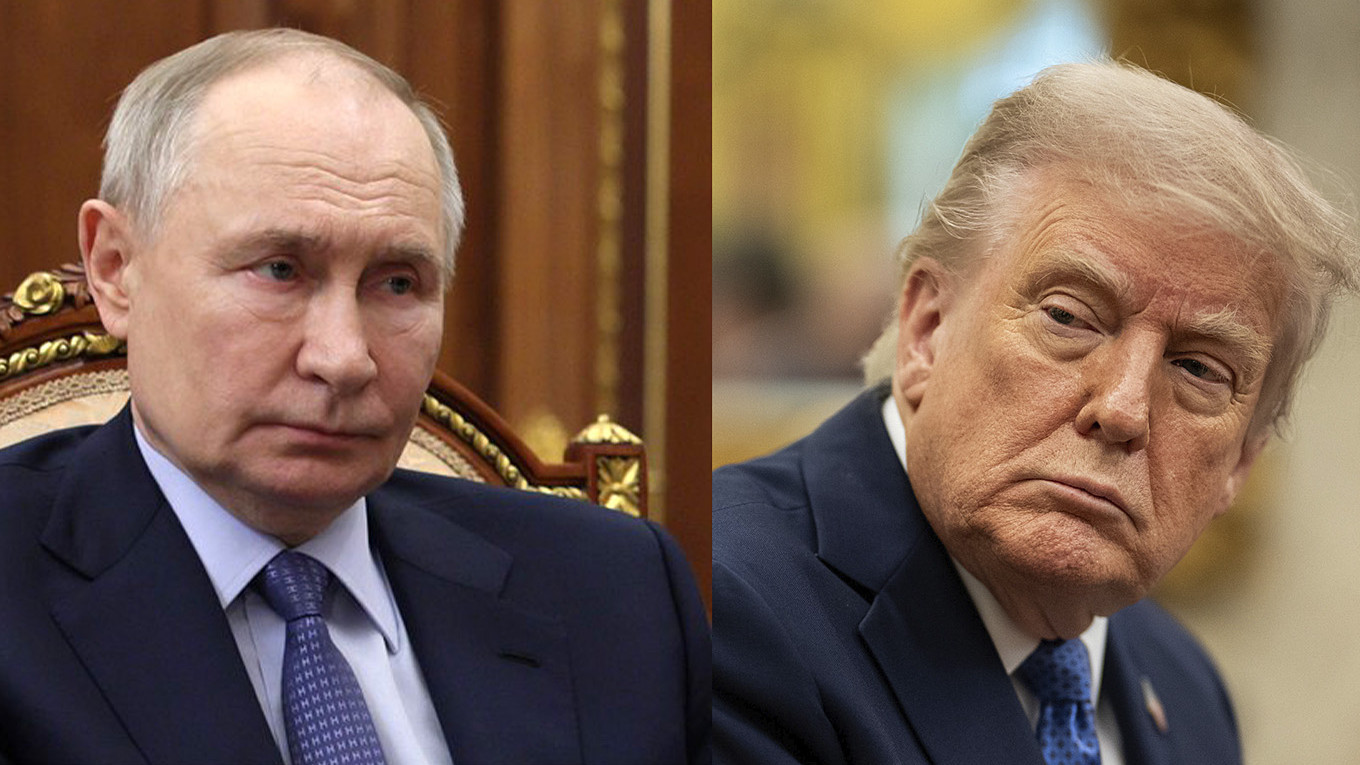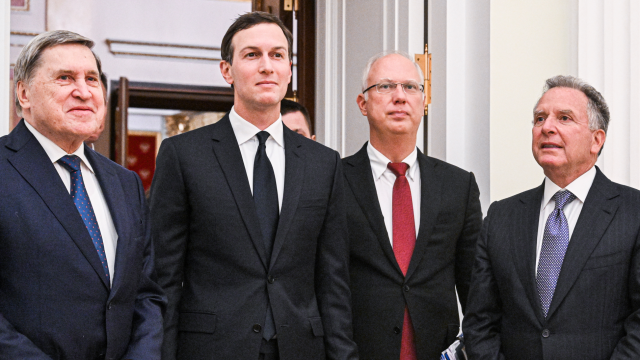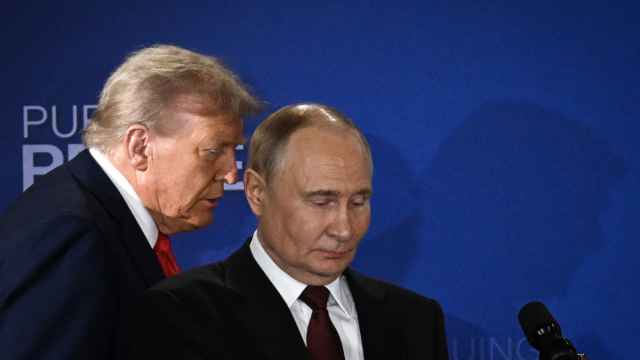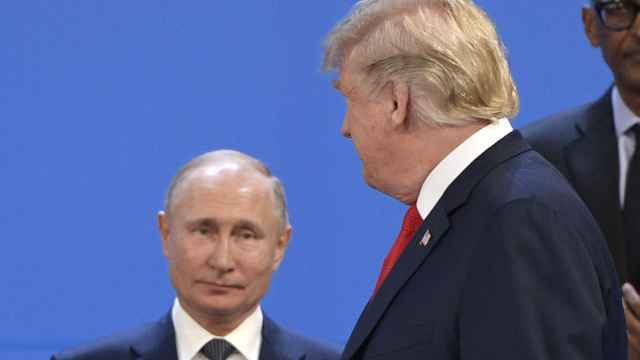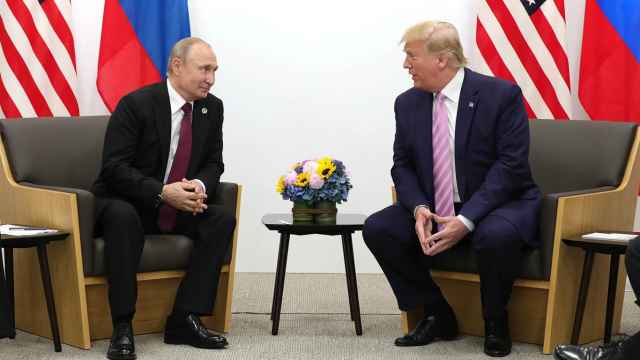When U.S. President Donald Trump called Russian counterpart Vladimir Putin days after renewed talks between Moscow and Kyiv in Istanbul, many expected him to take a harder stance toward the Kremlin leader, who has been deftly evading Trump’s calls for peace for months.
Instead, both leaders said the call “went very well” and was “substantive and quite candid.” While Trump declared that Russia-Ukraine talks would begin “immediately,” he made no mention of a ceasefire or having put pressure on Putin to commit to peace.
Experts said the call was the latest example of Moscow offering Trump something he could tout as a victory without making any substantial concessions in its three-year invasion of Ukraine.
Political analyst Ivan Preobrazhensky said that despite the renewed discussion around peace efforts, nothing has fundamentally changed following Monday night’s call.
“It seems clear that there was no serious talk of a ceasefire during the conversation — or at least, we haven’t been informed of any such discussion,” Preobrazhensky told The Moscow Times.
“In fact, this has been the defining characteristic of all negotiations so far: Russia has consistently refused to discuss any kind of military ceasefire,” he said.
“Putin’s aim is to avoid alienating Trump while also not engaging seriously in peace talks,” Preobrazhensky said. “So instead of talking about a ceasefire, he offered to discuss a memorandum that could take a long time to produce — and that’s likely the point. Putin’s strategy is to stall for time, dragging out the process until the window for Ukraine to conduct effective military operations begins to close.”
Following the conversation, Putin once again said that Moscow “supports a peaceful settlement of the Ukraine crisis” but repeated that the "root causes" of the conflict need to be eliminated, a reference to Putin's stated war goals of "de-Nazifying" and demilitarizing Kyiv.
The Kremlin said that during talks with the U.S. president, both sides agreed that Russia would “propose and is ready to engage” with Kyiv on drafting a memorandum that could form the basis for a future peace agreement.
According to the Russian side, the document would aim to outline key elements such as principles for resolving the conflict, including the timeframe for a possible peace deal, and a potential temporary ceasefire if mutual agreements were reached.
On the other side of the Atlantic, Trump said that the conditions of a Russia-Ukraine peace deal could only be negotiated between Moscow and Kyiv.
Tatiana Stanovaya, a senior fellow at the Carnegie Russia Eurasia Center in Berlin, said it appeared that Putin had found a way to present Trump with a short-term result from Washington’s peace efforts “without making any real concessions.”
“He [Putin] aims to bring Ukraine back into the Istanbul process and seems to have Trump’s support,” Stanovaya said.
“It is conceivable that he would accept a ceasefire as part of a broader settlement, one that could include conditions such as a freeze on military aid to Ukraine, a halt to recruitment and other military preparations,” Stanovaya said.
“When he talks about timing, he is signaling that Russia will not wait indefinitely for these conditions to be met,” she said.
Asked by a reporter after his call with Putin if there was a red line that would prompt him to exit the peace process, Trump said he had it “in my head, but not something I'm going to announce.”
Trump’s recap of the call also appeared to indicate that his focus may lie more in potential economic opportunities with Russia once the war is over than in ensuring Washington’s ally Kyiv gets a fair peace deal.
Yet, political analyst Alexander Morozov said that the relationship between Putin and Trump is likely to be short-lived and “Putin is well aware of this.”
“At the end of June, we’re facing the question of to what extent the United States will continue to fund Ukraine’s military needs for its defense,” Morozov told The Moscow Times.
“In addition to that, NATO will meet in The Hague to decide on the alliance’s strategy for the next two years — and that, too, will involve decisions about aid to Ukraine. I think this is exactly where the red line lies,” he said, referring to the future of Russia’s relationship with the West.
Ukrainian President Volodymyr Zelensky said he spoke with Trump twice on Monday — first in a one-on-one call ahead of Trump's conversation with the Russian president, and later in a joint discussion that included European leaders.
“If Russia refuses to stop the killings, refuses to release prisoners of war and hostages, if Putin puts forward unrealistic demands, this will mean that Russia continues to drag out the war,” Zelensky said on X.
“Russia must end the war it started, and it can begin doing so any day. Ukraine has always been ready for peace,” he said.
A Message from The Moscow Times:
Dear readers,
We are facing unprecedented challenges. Russia's Prosecutor General's Office has designated The Moscow Times as an "undesirable" organization, criminalizing our work and putting our staff at risk of prosecution. This follows our earlier unjust labeling as a "foreign agent."
These actions are direct attempts to silence independent journalism in Russia. The authorities claim our work "discredits the decisions of the Russian leadership." We see things differently: we strive to provide accurate, unbiased reporting on Russia.
We, the journalists of The Moscow Times, refuse to be silenced. But to continue our work, we need your help.
Your support, no matter how small, makes a world of difference. If you can, please support us monthly starting from just $2. It's quick to set up, and every contribution makes a significant impact.
By supporting The Moscow Times, you're defending open, independent journalism in the face of repression. Thank you for standing with us.
Remind me later.



